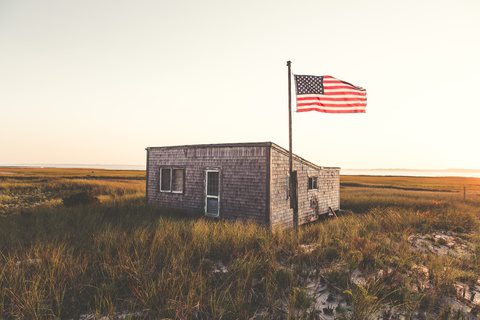White Rural Rage is a book by political science professor Tom Schaller and journalist Paul Waldman that argues that the 16% of Americans who farm or live in small towns are the biggest “threat to the world’s oldest constitutional democracy.”
Schaller told Morning Joe on MSNBC that rural Americans are “the most racist, xenophobic, anti-immigrant, anti-gay geo-demographic group in the country.” Furthermore, they are “the most conspiracist group,” “anti-democratic,” “white nationalist and white Christian nationalists.”
Resentment, he stresses, is not the same as rage. Rage is irrational emotion; resentment is a rational response to an actual experience. Rural Americans have legitimate problems and grievances that the government has just not been addressing and has sometimes been exacerbating.
As for the specific charges in the book, Jacobs excoriates the authors for their misuse of sources, low-quality studies they rely on, and their logical fallacies in their analysis. Reliable evidence contradicts virtually every charge made in White Rural Rage:
(1) Jacobs’ own research has shown that the “place-based resentment” he documents is not based on racial prejudice. Furthermore, racial and ethnic minorities who live in rural areas–about 20% of the rural population–share the same resentments!
(2) Studies of openness to authoritarianism show no geographic correllations.
(3) “Rural residents are less, not more, likely to support political violence.”
(4) Jacob’s own research found that 27% of rural voters–both Democrats and Republicans–believe that if the opposing candidate wins (whether Trump or Biden), the people should take action to prevent him from taking office. The book uses that information as evidence that rural voters are willing to overthrow democracy. But that’s exactly the same percentage, 27%, of urban and suburban voters who believe the same thing!
(5) Contrary to what the book says, rural voters are not more likely than urban voters to say that the opposing party is a “threat to the future of America.” While 38% of rural Trump supporters believe that, so do 36% of non-rural Biden supporters! (In fact, I would add, this seems to be what the authors of the book believe.)
Rural Americans are plagued with chronic health problems (exacerbated by hospital closures and few doctors), limited employment opportunities, infrastructure decay, funding shortfalls for schools, and government policies that have wrecked rural economies. Politicians of either party have done little to address them, and when they try, the results are often destructive of rural communities. Notes Jacobs, “The scars of federal tinkering — from land use policy to free trade agreements to dead-end retraining programs — are still very visible.”
He notes a poignant fact:
Rural Americans are the most likely to say that if given the chance, they would never want to leave their community, while at the same time they are the most likely to say that children growing up in their specific community will have to leave in order to live productive lives. Could any single policy solve that dilemma?
Jacobs recommends taking advantage of the rural spirit of self-reliance to empower individuals and local communities to address their problems, giving them a sense of agency and taking advantage of their strong local ties. Meanwhile, the demonizing of White Rural Rage–which, according to an Amazon editorial reviewer, takes the “basket of deplorables” slur to a new level–only makes matters worse by confirming to rural Americans that Democrats look down on them with contempt.
Last year Jacobs wrote entitled The Rural Voter: The Politics of Place and the Disuniting of America. It is a mark of Schaller and Waldman’s poor research that they evidently didn’t read it.
Photo via PxHere, Public Domain












